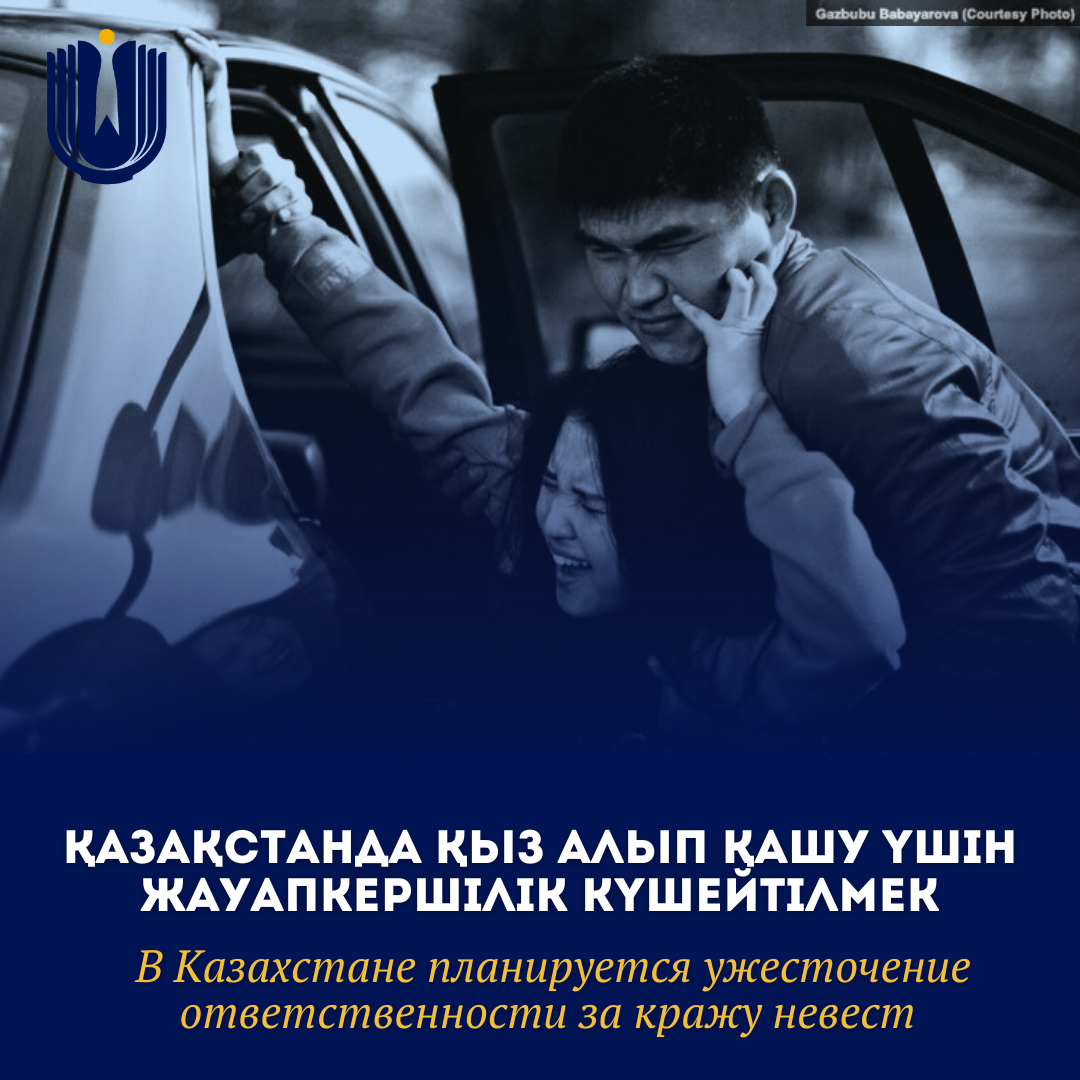Kazakhstan plans to toughen liability for bride kidnapping

The Office of the Commissioner for Human Rights is analyzing the situation with domestic violence and women's rights violations in Kazakhstan.
This problem is highly relevant throughout the world. 736 million women have been subjected to physical and other forms of violence. Of these, more than 640 million (87%) are women and girls over the age of 15.
In the last two and a half years alone, 300 murders have been committed in our country by domestic violence aggressors. 913 cases of serious harm to health, 837 cases of medium harm to health were recorded. More than 37 thousand persons were brought to various types of responsibility.
The main causes of domestic violence are socio-economic factors and existing gender stereotypes in society.
Girls who are subjected to forced marriage are often the victims of later violence by their partners. Forced marriages often deprive girls of the opportunity to receive education and a profession, which exacerbates their dependent and vulnerable position.
Complicating matters further, these cases are mostly latent, due to existing stereotypes that do not allow women to report the use of this type of coercion. In most cases, young people are not even aware of the criminal liability for kidnapping a girl. Few people realize that this is a serious crime, a flagrant violation of human rights to personal integrity and freedom.
An analysis of criminal offenses related to kidnapping showed that in the period from 2019 to the present, 214 criminal offenses of this category have been registered. At the same time, there are no reliable statistics on the theft of girls for the purpose of marriage, since the Criminal Code does not contain a separate element of such an offense.
It is important to understand the fundamental difference between the “alyp qashu” tradition, when the girl herself agrees to run away and marry, and the crime, when she is kidnapped and held against her will.
Young people should remember that marriage is an equal union entered into with the free and full consent of the parties.
In July 2019, the Human Rights Council adopted the Resolution A/HRC/RES/41/8 on child, early and forced marriage expressing concern on prevailing impunity and lack of accountability.
In a Resolution adopted on 17 December 2018, the UN General Assembly calls for effective action to end child, early and forced marriage, as mandated by the 2030 Agenda for Sustainable Development.
From August 1 to August 4 of this year, Regional representatives of the Commissioner for Human Rights take part in the annual action "Open Day of Mediation Cabinets", held under the auspices of the Assembly of the People of Kazakhstan.
Events are held in all regions of the country on the basis of Friendship Houses, where citizens have the opportunity to receive advice from mediators and representatives of state bodies on legal issues.
Representatives of the Ombudsman inform the participants of the meetings about the main activities of the human rights institution, as well as the results of the analysis of the problem of abductions for the purpose of marriage.
The Office of the Ombudsman is currently considering a number of amendments to the criminal legislation, in particular the introduction of a separate article and exclusion of a note to article 125 of the Criminal Code providing for exemption from criminal liability in case of voluntary release of the victim.
The experience of Central Asian countries has shown that the criminal laws of Kyrgyzstan, Uzbekistan and Turkmenistan have a separate article on the abduction of women for the purpose of forced marriage.
In addition, the Ombudsman has already submitted a proposal to introduce into the Criminal Code a separate article 125-1, "Abduction of a person for the purpose of marriage", which, we believe, will have a preventive effect, allowing to reduce the level of crime against women.
Prosecutor General’s Office has supported the Ombudsman's proposal and the amendments will be jointly introduced in the course of legislative activity.